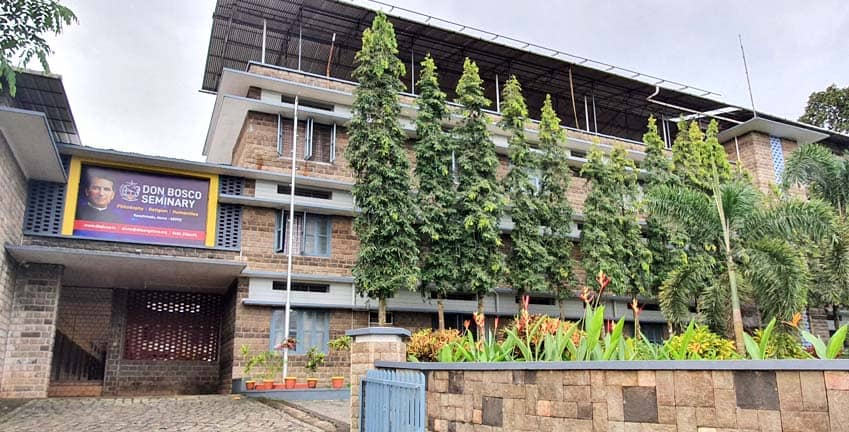Don Bosco College, Aluva is the institute of immediate Post-novitiate formation of the Salesian Province of Bangalore. The institute began in 1981 as a centre of Pre- novitiate formation. Later, as the need arose, from May 24, 1995, it started as the Studentate of Philosophy, with a new name of Don Bosco College. Ever since, the institute has offered a regular two-year course in philosophy.
Besides students from the province of Bangalore, the college is also open to the students of other Salesian Provinces as well as from other Religious Orders and Congregations.
Don Bosco College through its inter-disciplinary and integrated curriculum of studies, offers a congenial atmosphere for the study of Religion, Philosophy and Humanities. It helps students to integrate intellectual formation plays a vital role in bringing together faith, culture and life. It facilitates the formation of a critical, realistic and holistic vision of the world, human being and God. This noble endeavour is further enhanced by the study of humanities.
The institute also extends to the resident students abundant opportunities for pastoral work and experience. They are engaged in various pastoral activities especially on Sundays – such as teaching Catechism in Parishes, doing social work in villages, and initiating welfare programmes for the less privileged in society. Through these activities the students are enabled to meet youth in various situations, helping them acquire religious values and discharge responsibilities. These endeavours in turn become formative experiences for the students themselves creating in them social awareness and helping them to respond positively to varied needs and life situations. Besides, students are offered opportunities to develop their talents and potentialities.
Course offered: The institute offers a two year course in philosophy that caters to the ecclesiastical requirements of the philosophical formation of consecrated religious and of the intellectual formation of Salesians during the immediate post-novitiate period. The institute is open to have students from other religious orders, congregations and dioceses.
